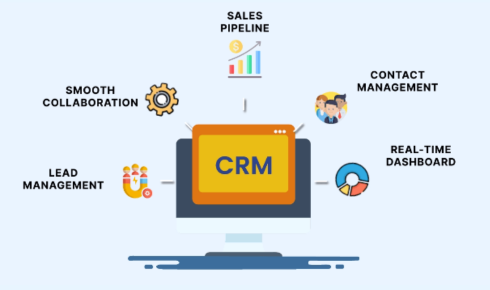Measuring CRM Success Beyond Setup: What Kiwi Businesses Often Miss

Zoho Partner in Auckland
So, you’ve finally set up your CRM. You’ve gone through the onboarding calls, imported your contacts, and maybe even automated a few follow-ups. The system looks great, the dashboard glows with promise, and your team nods politely when you ask how it’s going.
But here’s the uncomfortable truth: setting up your CRM is only the beginning.
The real question isn’t “Is it working?”, it’s “How do you know it’s working?”
That’s where most businesses in New Zealand drop the ball. They measure CRM success by setup milestones instead of business outcomes. Whether you’re in retail, finance, real estate, or professional services, your CRM isn’t just a tool, it’s a reflection of how your business thinks, acts, and grows.
And if you’ve partnered with a Zoho Partner in Auckland, you’ll know that the real success comes from what happens after launch day.
Why CRM Success Is More Than Just Go-Live
Getting your CRM live is like buying a gym membership, it’s a great start, but it won’t change anything unless you actually use it consistently and measure results.
Businesses often tick the wrong boxes:
- “Contacts imported”
- “Emails syncing”
- “Sales pipeline created”
And then they stop.
But the purpose of a CRM isn’t to collect data, it’s to use it. The question should be:
- Are your sales cycles shorter?
- Are you converting more leads?
- Are your customers happier and more loyal?
These are the signals of success.
Step 1: Define Success in Business Terms, Not Software Terms
A good CRM doesn’t just help your sales team, it connects your entire business ecosystem.
Here’s a quick mindset shift:
A Zoho implementation specialist will always start by asking, “What outcomes do you want to see in six months?” rather than “What modules do you want to install?”
So before you measure anything, decide what success actually means for your business.
Step 2: Track the Right Metrics (Not Just the Fancy Ones)
Once your CRM is up and running, it’s tempting to fall in love with colourful dashboards and vanity numbers. But here’s what truly matters:
1. Adoption Rate
How many of your team members are actually using the CRM? If only your manager logs in daily, you’ve got a problem.
2. Lead Conversion Rate
Measure how many leads move from “Interested” to “Won.” Zoho’s built-in analytics make this easy to track, and it’s one of the best indicators of system success.
3. Customer Retention
How often are customers returning or renewing? A good CRM keeps the conversation alive even after a deal closes.
4. Time Saved per Task
Automation should make your life easier. If your team spends less time chasing leads and more time closing them, that’s measurable success.
5. Data Quality
Garbage in, garbage out. Regular audits ensure your CRM data is clean, accurate, and actually useful.
Step 3: Measure Engagement, Not Just Efficiency
CRMs often focus on efficiency, shorter sales cycles, faster emails, more automation. But don’t forget engagement.
Ask yourself:
- Are your team members collaborating better?
- Are your customers engaging more often with your brand?
- Are your follow-ups more timely and relevant?
One Auckland-based retail chain, for instance, used Zoho to automate its customer surveys. Within three months, they saw a 40% increase in repeat purchases, not because the system sent more emails, but because it sent the right ones at the right time.
The moral? Efficiency gets attention. Engagement builds loyalty.
Step 4: Review, Refine, Repeat
CRM success isn’t a “set and forget” deal. It’s a cycle.
Every quarter, take a step back and ask:
- What’s working well?
- What’s being ignored?
- Which automation feels robotic or off-brand?
- Are there new reports that would make insights clearer?
A Zoho Partner in Auckland can help you do this systematically, reviewing data trends, retraining staff where needed, and tweaking automation rules to reflect how your business evolves.
Think of it as CRM therapy. You don’t need a new system. You just need to listen, adjust, and grow.
Common FAQs
Q1: How long does it take to measure real CRM success?
Usually 3–6 months. That’s enough time to collect meaningful data, identify patterns, and see how your team adapts.
Q2: What if my team still prefers spreadsheets?
That’s normal. The trick is to show them how the CRM saves time and gives visibility. A Zoho implementation specialist can design workflows that feel intuitive, not restrictive.
Q3: Can Zoho track ROI automatically?
Yes. Zoho CRM lets you connect revenue data to marketing sources, so you can see which campaigns actually drive profit.
Q4: How often should we review our CRM setup?
At least every quarter. Think of it like tuning your car, it runs better when maintained regularly.
Step 5: Celebrate the Wins (Even the Small Ones)
CRM adoption can be a journey full of minor frustrations and major breakthroughs. When your team starts using automation properly or when your first data-driven sales report impresses management, celebrate it.
Small wins build momentum. And momentum drives long-term success.
Final Thoughts: It’s Not About the Software, It’s About the Strategy
CRM success isn’t measured by how fancy your system looks, it’s measured by how smoothly your business runs because of it.
When your CRM is truly working, you’ll notice:
- Fewer surprises.
- Faster responses.
- Happier customers.
- A team that finally says, “This makes sense.”
So, before you think about switching systems or adding more automation, take a step back and ask: Are we measuring the right things?
And if you’re not sure where to start, partnering with a Zoho Partner in Auckland or consulting a Zoho implementation specialist can help you turn your CRM from a static database into a growth engine that moves with your business.
Because in the end, CRM success isn’t about setup, it’s about staying in sync with what your customers and your team truly need.



